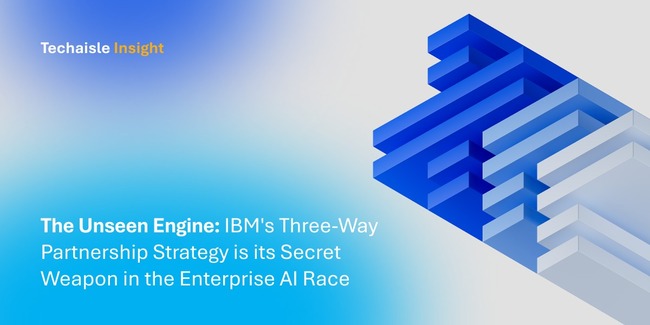The technology industry is awash in the chaotic churn of the AI revolution. We are, as IBM's Rob Thomas aptly puts it, at the "light bulb stage"—a moment of dazzling potential but widespread confusion about how to translate that spark into industrial-strength power. For enterprise leaders, this translates into a tangible crisis of value. We have all heard the stories, like the one from IBM Consulting’s Mohamad Ali about a CFO with 1,900 active AI proofs-of-concept and not "a dime of benefit to my bottom line". This sentiment is validated by recent studies highlighting significant failures in enterprise AI adoption.
Amid this hype, IBM is charting a deliberately different, deeply pragmatic course. Drawing from conversations with its top leadership—including CEO Arvind Krishna, Infrastructure SVP Ric Lewis, and Consulting SVP Mohamad Ali—a clear picture emerges. IBM is not chasing the consumer-facing, frontier-model hype. Instead, it is methodically building an integrated, full-stack proposition designed to solve the complex, high-stakes challenges of enterprise AI. It is a strategy that leverages its entire portfolio—consulting, software, and hardware—to move clients from speculative POCs to tangible ROI.
This strategy hinges on a central thesis articulated by IBM: AI is the killer app for hybrid cloud. For IBM, these two domains are not separate initiatives but a symbiotic pair, each fueling the other and creating a defensible position in a market dominated by cloud-native hyperscalers.
What is IBM? The Vertical Integrator of Transformation
Before dissecting the strategy, it is crucial to define what IBM has become. Traditional labels fall short. It is not merely a "platform company" like a hyperscaler, nor is it just a "transformation partner" like a pure-play SI.
The most accurate and insightful descriptor (as per Techaisle) is the Vertical Integrator of Transformation. In manufacturing, vertical integration means owning the supply chain. In today's digital economy, IBM is a vertically integrated provider of enterprise transformation, owning and controlling the critical layers of the value chain:
- The Foundation (Raw Material): It owns the hybrid cloud platform via Red Hat OpenShift, the architectural bedrock that enables orchestration across any environment.
- The Components (Value-add Software & Infrastructure): It builds the critical software for AI (watsonx), data, and automation that runs on that foundation and provides differentiated compute and storage for mission-critical workloads.
- The Factory & Logistics (Services): It has the global talent in IBM Consulting to design the strategic blueprint, assemble the components, and manage the final solution for the client.
This integrated model is IBM’s core strategic advantage, allowing it to deliver a level of accountability and synergy that siloed competitors cannot match.














